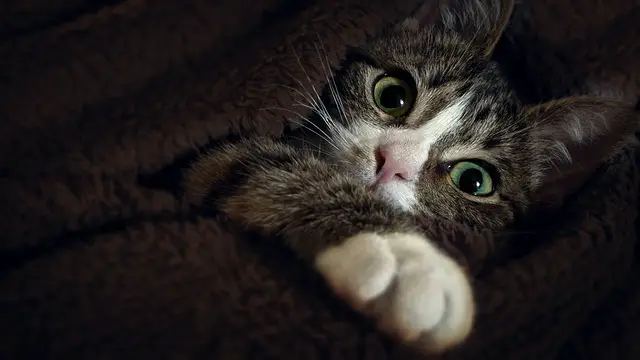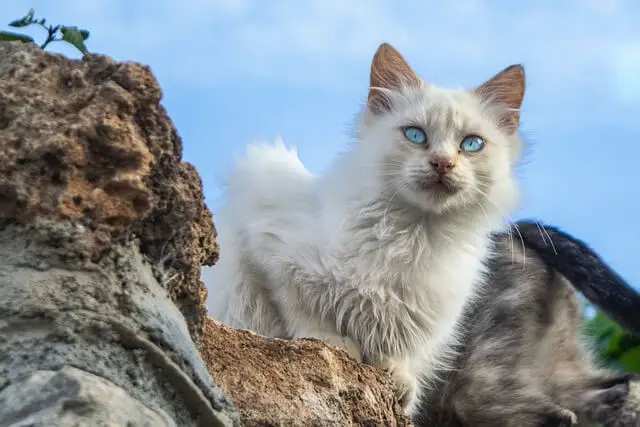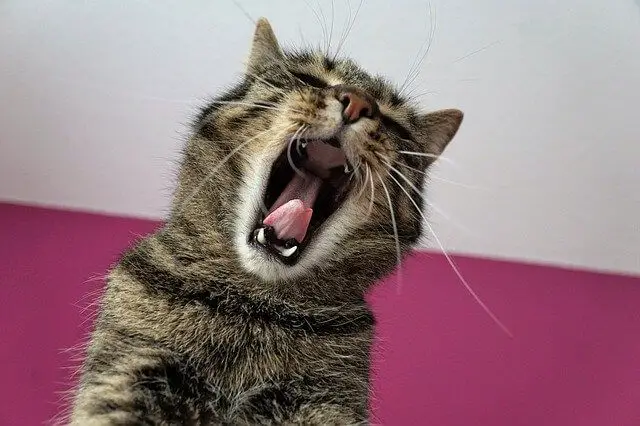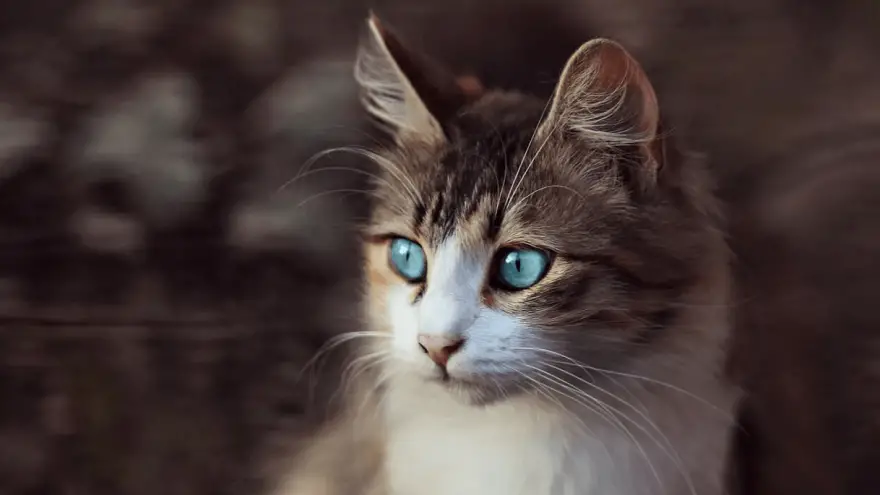FIV in Cats: Infection, Treatment & Prevention
06.04.2022.
There's nothing that would make us happier than keeping our cats healthy and happy throughout their lives. Unfortunately, some dangerous diseases can be deadly for our beloved felines. One of those diseases is the feline immunodeficiency virus, or FIV. If you want to be a responsible cat owner, you should know the most important things about FIV in cats.
Why are cats susceptible to feline immunodeficiency?
FIV is a virus that only affects cats and is known as the feline immunodeficiency virus. As with HIV (the human immunodeficiency virus, which causes AIDS in humans), it attacks and weakens the immune system, and there is no cure for it. FIV has been found in cats all over the world since it was first discovered in the mid-1980s. Cats rarely get it, despite how common it is in humans. Only 1% to 5% of cats show signs of being infected with the virus. FIV comes in various forms, some of which appear to be more dangerous than others.
RELATED: Feline Leukemia Virus (FeLV): Information, Spreading & Treatment
My cat is positive for FIV. Does that mean it has AIDS?
If a cat is FIV-positive, it doesn't mean they immediately have feline AIDS (acquired immunodeficiency syndrome of cats). If your cat has been infected with the feline immunodeficiency virus (FIV), the FIV screening test will detect antibodies in your cat's blood. A diagnosis of FIV positivity means that your cat has been infected with the virus. Still, developing the clinical signs known as feline AIDS may take years, if ever.

Can I or my family contract FIV from my cat?
Not at all! Even though HIV and FIV are incredibly similar, in fact, they can be described as cousins; they are specialized for different species. Only humans can be infected with HIV, whereas only members of the cat species can be infected with FIV. There is no risk of transmission between feline immunodeficiency virus and human immunodeficiency virus because the viruses are highly specific to their respective species.
RELATED: Diabetes in Cats: Symptoms, Treatment & Monitoring
Other pets in my house, are they in danger?
Your other cats could have already contracted it, and your vet should recommend you test your other cats for FIV. However, casual social contact, such as licking fur, playing, or napping, is an unlikely way to spread the virus to other cats; it's possible that your other cats will test negative for FIV. There is, however, a certain amount of risk involved for other cats when they have a cat with FIV in their immediate environment.
How does a cat contract FIV?
Saliva from infected cats is a major source of the virus. FIV-infected cats can shed the virus into their saliva. If they get in a fight and bite another cat, the saliva is directly inoculated through open skin punctures. Infected blood can infect a susceptible cat. The cat can become infected with contaminated blood through bite wounds or blood transfusion. A sexually transmitted FIV infection is a possibility.

Some cats with this virus are known for their aggression, especially those treated for cat bite injuries in the past. Suppose your cat got into a fight with an unknown cat. In that case, it is a good idea to tell your vet and have the cat tested for this horrible virus.
If it doesn't infect a cat immediately, the FIV microbe can only last for a short time. Pregnancy is risky, and kittens can become infected by their mothers during all parts of it. During pregnancy or nursing, the virus is thought to be passed from mother cat to kitten through the uterus or mother cat's milk. Cats whose mothers are infected have a 25-35% chance of contracting the virus.
RELATED: Is Your Cat Panting? Here's What It Might Mean
How do vets diagnose it?
Blood tests detect antibodies to FIV and are used to diagnose the disease. The ELISA test is the most widely used screening procedure (enzyme-linked immunosorbent assay). As long as the cat shows up positive for an antibody test, it probably was, and continues to be, infected with the virus.
In vaccinated cats, false-positive results are possible because tests do not distinguish between disease-produced antibodies and those induced by the vaccine. There are antibodies in an infected mother's milk that can cause a false positive on different kitten tests for FIV. Kittens who test positive for FIV at four months old should be tested again at six months when any maternal antibodies have dissipated.
As antibodies to FIV can develop over eight weeks, a cat that has only recently been exposed to the virus may test negative.

Suppose there was a positive diagnosis for kittens. In that case, it's recommended that ELISA results are tested again in eight weeks, or that blood samples be submitted for more accurate Western Blot or PCR (polychrome chain reaction) tests.
RELATED: What Does Blood in Cat Stool Mean?
Is there a cure for FIV?
Once a cat has contracted this virus, it will be present in the cat's body for the remainder of its life. So far, vets and scientists have not developed a cure that will clear cats from this horrible virus. However, we still don't know whether all cats infected will become ill. A cat may not show any symptoms for a considerable amount of time after being infected with FIV for the first time.
FIV-related diseases in cats
The FIV virus will weaken the immune system and prevent it from fighting off other infections. Normally treatable infections become long-lasting or chronic for the cat. Diseases related to FIV may actually be caused by other non-healing infections.
Cat AIDS is a term used to describe the appearance of clinical symptoms of the feline immunodeficiency virus. FIV infection can cause a wide range of conditions, including:
- Stomatitis and gingivitis
- Loss of weight
- Chronic conjunctivitis (eye inflammation)
- Poor appetite
- Fever
- Swollen lymph nodes
- Diarrhea and vomiting

The majority of these symptoms are non-specific and can be found in various diseases. Regardless of the cat's lifestyle, any cat with chronic illnesses or conditions associated with FIV should be tested for it.
RELATED: Kidney Failure in Cats: Causes, Symptoms & Treatment
Does FIV have a treatment?
Antibiotics are effective in treating bacterial infections that are a result of feline AIDS. In most cases, this is only a short-term fix, as the body's immune system has been weakened. Human anti-HIV drugs like AZT (zidovudine, Retrovir) have been used successfully on some cats. There is also the possibility that immune-stimulating drugs and antioxidants are helpful. Make an appointment with your veterinarian to learn more about these options.
Is euthanasia the best option for my cat?
The late-stage disease typically calls for the humane thing to do. Cats with FIV can go for years without showing any symptoms. Cats usually live between three to five years, without showing severe signs of FIV infections.
What can I do to help my cat with FIV?
The best way to help your cat is to ensure it leads a healthy life. Make sure you give your cat a high-quality diet, along with twice-yearly examinations to monitor its immune status. Infections should be dealt with as soon as possible and as forcefully as possible. FIV-positive cats should not be fed a raw diet because the pathogens in these foods can make them sick. Similarly, parasite control for your cat may be recommended to ensure their health.
Make an appointment with your veterinarian to discuss which vaccines are appropriate for your cat. In some cases, your veterinarian may recommend vaccinations for your infected cat, depending on the risk factors like getting in contact with other infected cats. Some local laws require cats with FIV to be vaccinated. Suppose your cat is in good general health. In that case, the asymptomatic period (when no evident disease is present) will be longer. FIV-infected cats must be kept indoors at all times in order to protect the other cats in the neighborhood from contracting the virus and reduce the risk of your cat contracting the virus from another cat.
RELATED: Pancreatitis in Cats: Causes, Symptoms & Treatment
Are FIV vaccines available? How can I keep my cat safe?
To reduce the risk of this nasty infection, make sure your cat leads an indoor life. Let them out only with strong supervision. Most cats become infected through bite wounds sustained while fighting. There is currently no vaccine for this disease.
Do you have an FIV-positive cat living with other healthy cats?
There are two choices available to you:
- FIV-positive cats should be housed alone, preferably in a home without any other cats.
- You can risk keeping the infected cat living with your other pets. The possibility of FIV spreading through social interaction is fairly low. However, some precautions are necessary, and food should never be left in bowls on the floor for the other cats to share. The positive cat will need its own bowl.
World Cat Finder Team







Share